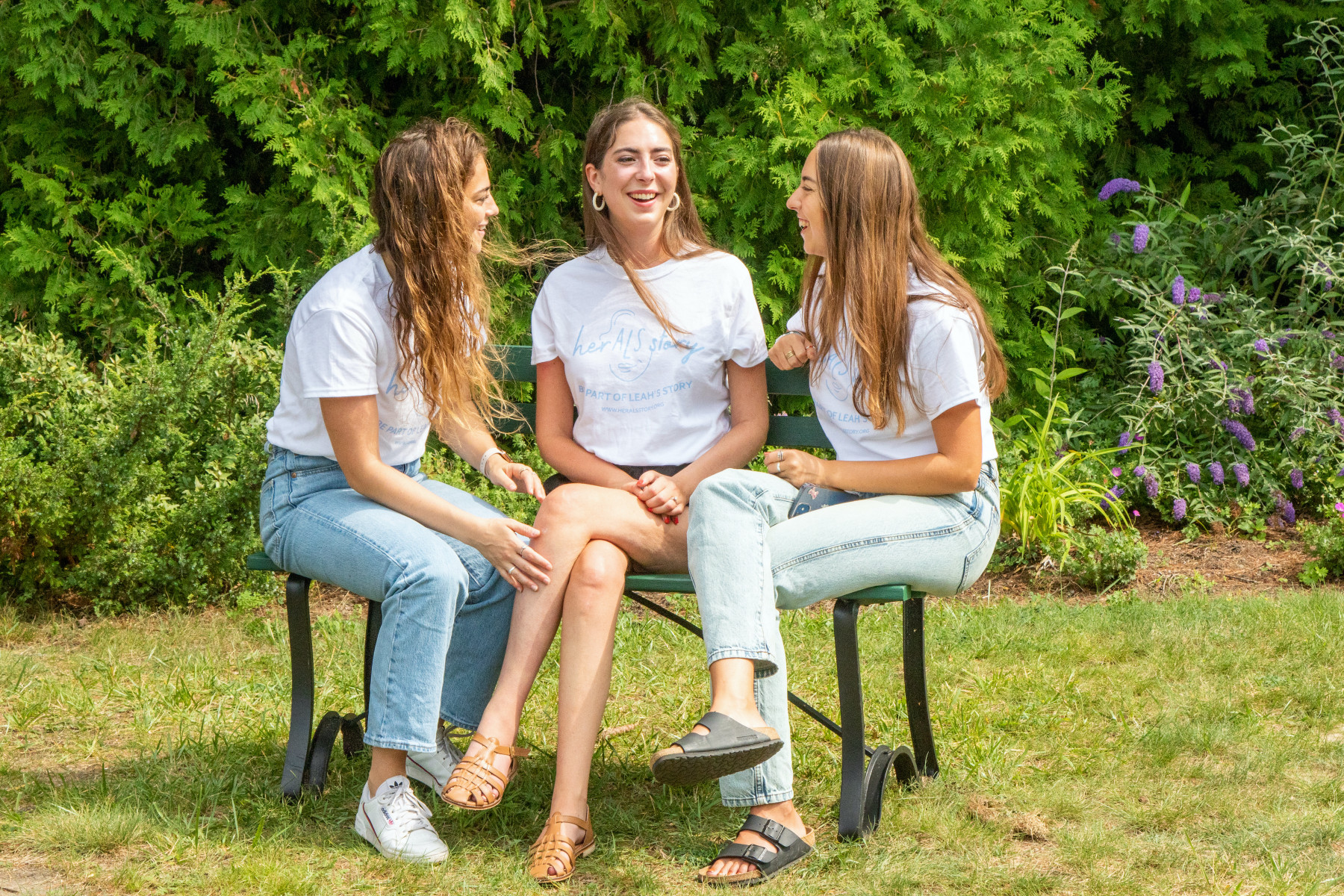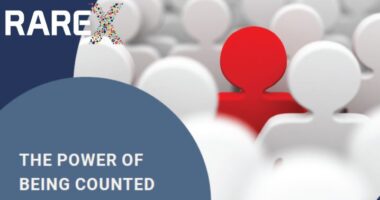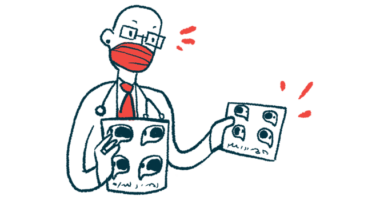Young Woman With ALS Creates Nonprofit for People Like Her

Leah Stavenhagen, center, founded Her ALS Story in April. Here she sits with her sisters Melissa Stavenhagen, left, and Emma Stavenhagen.(Photo courtesy of Leah Stavenhagen)
When Leah Stavenhagen was 27, she was living in Paris and traveling through Europe. But an amyotrophic lateral sclerosis (ALS) diagnosis forced her to give up her job as a consultant with Ernst & Young and dashed her dreams of continuing to work abroad.
At the time, she seemed healthy, but she started having leg cramps in 2018. Then she noticed she was falling and struggling to keep up walking with her friends. When a doctor couldn’t find a knee-jerk reflex in March 2019, it led her down a nine-month diagnostic odyssey that would confirm what she already knew — she had ALS.
A disease she had thought only affected older men was now rearing its head in her life.
That was the impetus for Stavenhagen, now 29, to start Her ALS Story in April. The nonprofit brings together women under 35 who have received the devastating diagnosis. To date, the organization has collaborated with about 30 women to help them tell their stories and connect with people in similar situations.
“It is trying to pull back the cover so that people will realize it’s not only older men [affected by ALS],” said Stavenhagen, who now splits her time between Paris and Westchester County, New York, in a video interview with ALS News Today. “It can really be anybody, anywhere, at any age.”
Every two weeks, members of Her ALS Story meet by video and have a chance to bond over their shared experience of managing the disease at such a young age.
“There’s something very comforting seeing people that look a little bit like you or maybe are at the same stage in life as you,” Stavenhagen said.
She is also hoping to raise awareness about sobering ALS statistics. According to Her ALS Story, 1 in 300 people will receive the diagnosis in their lifetime. And 10% of those people are under 45.
Stavenhagen hopes that sharing the stories about young women with ALS will help bring awareness, research funds, and policy change, such as the recently introduced Accelerating Access to Critical Therapies for ALS Act, which will provide more federal research grants for work in the disease.
“There’s something that pulls at your heartstrings a little bit more when you see young women who are fresh out of their career, just married, and then they get this crazy diagnosis,” Stavenhagen said. “And it can really stop people in their tracks and make them listen to what you have to say.”
While Stavenhagen uses a wheelchair full time and has limited function in her upper body, she remains hopeful, especially given her monthly T regulatory (Treg) cell infusions. These cells have been shown to reduce the neuroinflammatory response seen in ALS.
She is the first ALS patient known to have received the CK0803 investigational treatment, derived from umbilical cord blood and produced by Cellenkos, a small biotech company in Houston. Stavenhagen started receiving the infusion as part of an expanded access program through the Columbia University Irving Medical Center in New York City in June 2020.
It’s difficult for her to know if the CK0803 treatment has made a significant impact; however, she said that her disease progression has dramatically slowed since starting on Treg infusions.
“That is super exciting scientifically, and I’m very grateful. Hopefully, I can continue with this program for as long as possible,” she said.
In the past two years, Stavenhagen has come to grips with an ALS diagnosis, started an organization to advocate for people like her, and begun life with her husband, whom she married last year. Despite all that and never wanting to have heard about ALS in the first place, she is looking on the bright side.
“It’s cool to have … such a purpose now and to have something that you really want to work toward and that shows you how supportive and eager people are to have something to get behind and try to help,” she said.







